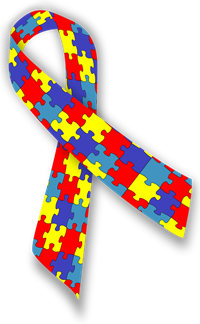Asperger’s, Television, and Arthur
 Ever since NHL’s diagnosis, I found that I like seeing depictions of Asperger’s on television. There’s the Parenthood (which I actually don’t watch, but have heard is a great portrayal), Doctor Sheldon Cooper from Big Bang Theory (which never comes out and says that he has Asperger’s since it is a comedy and Sheldon’s actions often elicit laughs, but otherwise makes a great portrayal), and more.
Ever since NHL’s diagnosis, I found that I like seeing depictions of Asperger’s on television. There’s the Parenthood (which I actually don’t watch, but have heard is a great portrayal), Doctor Sheldon Cooper from Big Bang Theory (which never comes out and says that he has Asperger’s since it is a comedy and Sheldon’s actions often elicit laughs, but otherwise makes a great portrayal), and more.
Recently, I had heard that PBS’s Arthur had an episode on Asperger’s Syndrome. Technically speaking, the episode aired two years ago, but I hadn’t seen it except in a small YouTube segment. Over the weekend, though, I realized that we have Arthur on Netflix. Perhaps the episode was there to watch. I didn’t know the title offhand, but skimming through the long list of episodes (Arthur has been on the air for over 16 years now), I found it. Season 13, episode 6: When Carl Met George.
The basic plot is simple, George (a moose who likes ventriloquism) is sent to the library to find more glue for his class. There he meets Carl, a boy who is completing a puzzle, likes trains, and whose mother is getting him apple juice "in a box, not a bottle." Carl speaks in a bit of a monotone voice, has trouble with expressions ("Maybe we can hang out sometime." "Hang out of what?"), is startled and overwhelmed by unfamiliar objects (such as George’s ventriloquism dummy: a big giraffe), is extremely honest, and who can speak on and on about subjects he loves without noticing or caring whether anyone is listening.
I found this episode extremely interesting. I found Arthur’s portrayal of Carl to be extremely accurate. I could see parallels in much of what Carl does and how he acts with NHL. For example, while Carl might go on and on about trains, NHL has trouble stopping talking about Legos or video games. He’ll try to give everyone a detailed description of where he is in his current favorite game and every single step he needed to take to get there. He also has trouble distinguishing when the other person has heard enough or when the conversation is over. (He’ll often leave the room still talking about his favorite subject – a trait that I used to exhibit and still do from time to time.)
My favorite segment, however, was the "what it is like to have Asperger’s" sequence. In this, George takes an imaginary trip to another world. On this world, many things look the same as on Earth, but a lot is different. People talk very loud for no particular reason, have odd expressions that make perfect sense to them ("good night for a banana fight, right?"), and dress in a matter that we would find extremely funny (but that they see as perfectly normal – thus making George look weird for laughing). The segment only lasts two minutes, but boils down the challenge of Aspies living in a neurotypical world.
Also interesting is the "real world" segment that comes after "When Carl Met George." Arthur episodes typically include "And Now a Word from Us Kids", which shows real kids talking about what the animated episode was discussing. This sequence showed some real kids with Asperger’s and Autism riding horses (as therapy) and in school. I really liked the closing quote from the teacher: "People who have minds that work differently are really, really interesting people. They matter just as much as everyone else."
This might be a bit delayed, but I’d like to thank the creators of PBS and Arthur for such a wonderful episode. Given that the series tackled Asperger’s so wonderfully, and that it has taken on other big topics, such as cancer, this is definitely a show I will be encouraging my kids to watch.
NOTE: The Autism Awareness ribbon icon above was created by Melesse and comes from Wikimedia Commons.

 Yesterday, I revealed that
Yesterday, I revealed that  A few months ago, I mentioned
A few months ago, I mentioned